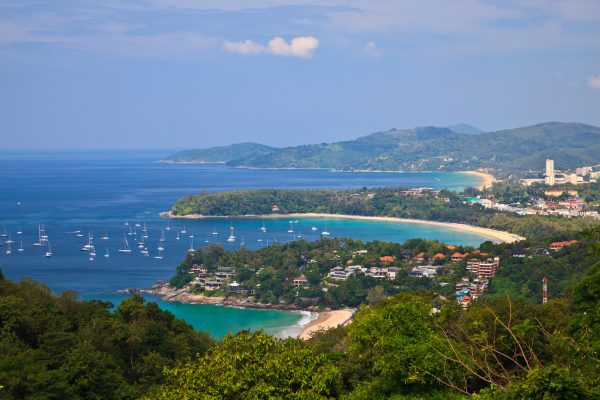
The ultra-progressive Move Forward Party (MFP) has defied expectations by sweeping the popular vote in Thailand’s 2023 general election, even beating the populist Pheu Thai Party (PTP), which was projected to win the most votes, albeit by a slight margin. The election saw a record voter turnout of around 75.2 percent, or 39 million individuals, and roughly 14 million voted for MFP. The MFP’s victory, while impressive, was not exactly decisive.
Both the MFP and PTP brand themselves as “pro-democracy” and they, together with at least six other parties, have tentatively agreed to form a coalition. Still, as highlighted by the abrupt exits of two prospective partners, the coalition formation is wobbly. Moreover, by refusing to compromise with major conservative parties, the current MFP-led coalition with an estimated 313 House seats remains too small to take over. As The Diplomat’s Sebastian Strangio noted, a coalition must secure a minimum of 376 House seats to override a Senate veto.
Although more senators have indicated a willingness to endorse MFP’s leader Pita Limjaroenrat as Thailand’s next premier, many still view the MFP’s radical push for structural reforms as a threat to stability and would probably either vote against Pita or abstain from voting altogether. Pita could even be barred from parliament following a recent allegation of media shareholding. (MPs in Thailand are not supposed to hold shares in any media company).
Many local observers believe that the unbending MFP would eventually fail to form a governing coalition and would once again be pushed to the opposition. PTP, despite constantly voicing support for Pita’s premiership and denying “secret deals” with the conservative wing, could reverse its stance and head the new administration without MFP. Thaksin Shinawatra, former prime minister in self-exile and PTP’s founding father, has expressed stronger determination to “return home” and the easiest way to do that is to cooperate with the conservative establishment, not with the reformist MFP. Move Forward is certainly aware of the risk of being cast aside but looks ready to play the long game – to garner more public support as the main opposition party, weaken old parties including the PTP, then win overwhelmingly in the next election.
Given the many unknowns and complexities of Thai politics, making predictions seems fruitless. Perhaps the more interesting question at this stage concerns the MFP’s abilities to penetrate the strongholds of other parties. In this sense, the party’s triumph in Phuket, Thailand’s tourism hotspot, is particularly intriguing. Like the rest of Southern Thailand, Phuket has a long streak of picking conservative parties. The traditional champion Democrat Party and the rising star Bhumjaithai – both backed by influential local business elites – were therefore seen as the key contenders, along with military-backed parties. Yet candidates from these parties trailed quite a bit behind MFP candidates, which astonishingly won in all three of Phuket’s constituencies. According to the unofficial election results, all MFP candidates in Phuket captured slightly over 20,000 votes whereas the runners-up won somewhere between 14,967 and 16,483 votes.
What accounts for Phuket’s unorthodox voting behavior? One explanation could be that Phuketians find MFP’s pledge of decentralization alluring. Together with Michael Montesano of ISEAS-Yusof Ishak Institute, I have previously written about Phuket’s thirst for provincial autonomy. This longstanding sentiment has been shaped by the “unfair” budget allocation from the central government – Phuket receives a low budget despite generating high incomes for Thailand – combined with the need to have a “custom-made” governance structure and reduce bureaucracy, thereby enhancing its competitiveness and capacities to tackle problems.
Calls for more administrative freedom have grown since the COVID-19 pandemic. Although the Prayut Chan-o-cha government gave vaccine priority to Phuket and poured money into Phuket’s tourism recovery, up to 90 percent of small and midsize enterprises (SMEs) could not comply with rigid government rules and were excluded from the “sandbox” tourism program. Many of these SMEs have collapsed and are beyond revival, aggravating frustrations and desires for change.
MFP, with its revolutionary policies on decentralization, has naturally become an attractive choice. The party has not only campaigned for governor elections in all 77 Thai provinces but has also promised to allocate an additional budget of 250 million baht per year to each province. This extra budget, as MFP insists, will be drawn from the existing government budget and will require no extra payment from taxpayers. While the question of “fairness” remains, the proposed changes would give Phuketians more freedom to determine the course of provincial development.
Currently, Thai governors (apart from those in Bangkok and Pattaya) are appointed by the Ministry of Interior. Many politicians have toyed with the idea of an elected Phuket governor, but have been reluctant to push this agenda forward considering the security implications. Separatists in the Deep South, for instance, could be emboldened to demand more autonomy.
Public transportation, something that Phuket lacks despite being a world-famous travel destination, is another factor. As opposed to other political parties that focus on mega projects involving high-speed trains and land bridges that will take time to unlock, MFP concentrates on developing public buses. The scheme to run electric public buses in all 77 provinces could help alleviate Phuket’s notorious taxi mafia problem and the emerging issue of air pollution (even though Phuket’s PM2.5 level is relatively low compared to Bangkok and the Northern region).
Taking into account the above points as well as the general trend of increasing pro-MFP youth voter engagement and the MFP’s utilization of social media to disrupt Thailand’s traditional election campaigns, it makes sense why MFP managed to rise in Phuket.
Why Did Thailand’s Move Forward Party Win Big in Phuket?
Source: Frappler

0 Comments